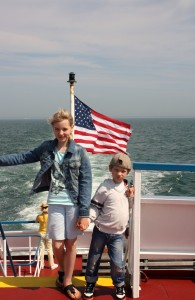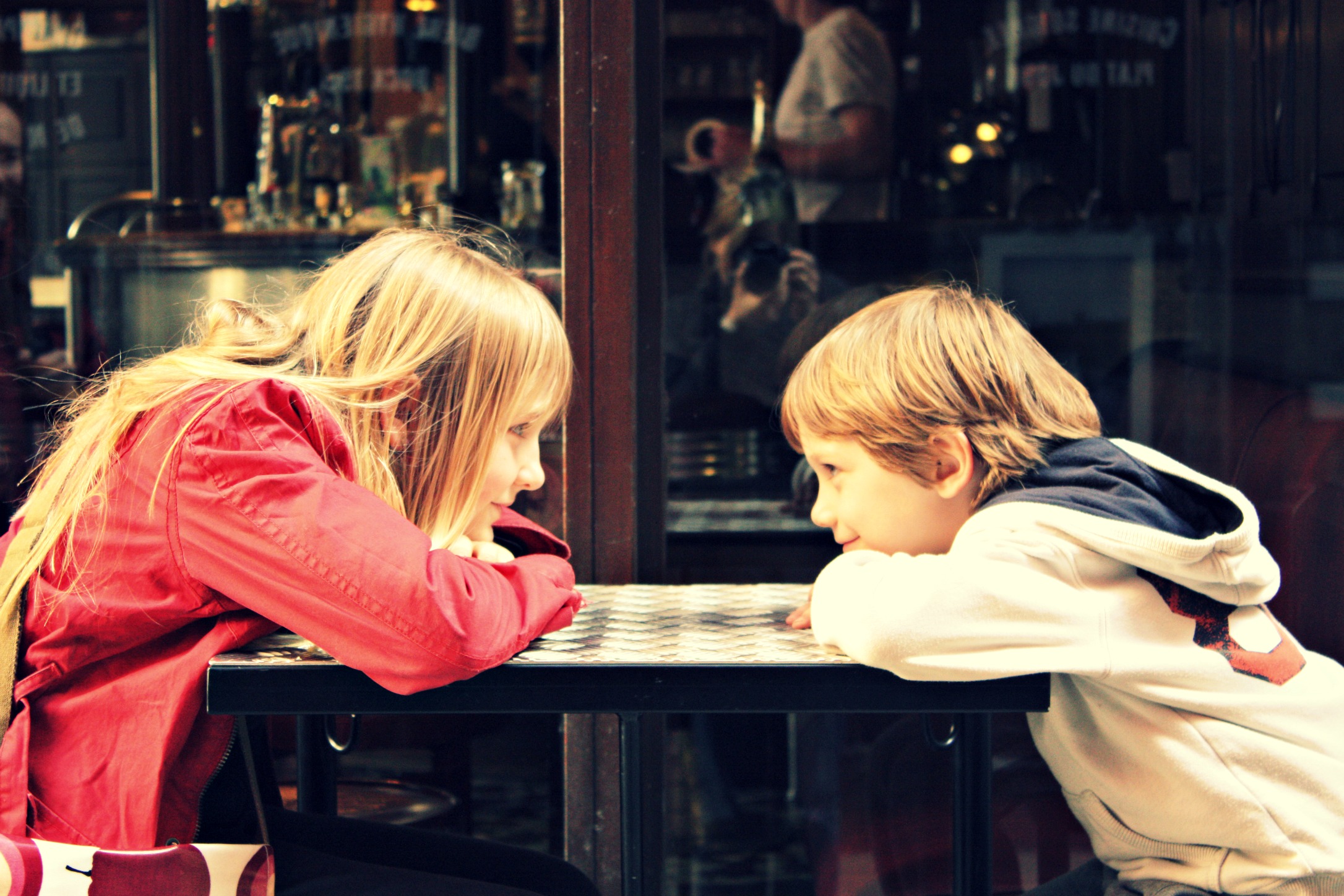One of my absolute favorite “Mom stories” comes from a hot 4th of July, when my daughter, Carmen, now 16, was 8 years old. We were still living in Paris at the time, and I had just gotten out of the shower and was getting dressed, chatting to the kids through the bedroom door. It was the start of summer holidays, and we were tossing plans for the day back and forth.
Go to the pool? Go to an air conditioned movie? Go on a picnic?
Whatever we opted for would need to accommodate a busy 2-year-old, as Carmen’s little brother, my son Lorenzo, was into everything.
“Oh, by the way,” I dropped in casually, it only having just occurred to me, as well. “Today is the 4th of July.”
No response.
“Carmen? Did you hear me? Today is the 4th of July.” By now I was planted in front of her, combing the snarls out of my damp hair.
“Oh,“ she answered, sounding mildly bored. “Is that the day we’re supposed to kill a turkey or something?”
Good lord, I remember thinking.
Of course, the fact that my 8-year-old thought this was the day we were supposed to kill a turkey (as if that’s what actually happens at Thanksgiving) bore zero reflection on how well she had been paying attention and total reflection on my efforts at teaching her. What had I done over the years to expose her to the Thanksgiving tradition? What had she ever known of the 4th of July?
The answer to both of these questions was nothing.
Unlike some American expats, who joined forces regularly on US holidays, I had not managed to cobble together much patriotic community since moving to Paris – from Uganda, where Carmen passed her infancy – six years earlier. I could say that it was because I had an Argentinian-Italian husband who was not interested in celebrating US holidays. Or because I now lived in a community of French people (with a few Scots thrown in for good measure) who also had no interest at all in observing US holidays. But the truth is, my kids were growing up believing the 4th of July was the day we were supposed to “kill a turkey or something” because I had not taken charge, regardless of who made up my community, of teaching them.
Truth be told, the 4th of July had never been very significant for me, either. Having grown up overseas myself, my memories of the 4th circled around the occasional celebration at the US Ambassador’s residence, or not celebrating it at all. Thanksgiving was always more ceremonious than the 4th — at least while living overseas with my parents, as US Embassy families did tend to get together for turkey or some local stand-in.
Still, when I was 8 years old, I knew the difference – and knew it well – between Thanksgiving and the 4th of July. And though at the time I found Carmen’s comment utterly hilarious, I also took it as a wake up call: I needed to teach my kids about their maternal cultural identity.
But how to teach expatriated kids where they are “from”? What does it mean to be from a place – especially if you were not born there, have never lived there, but hold the passport, speak the language, and even have the requisite accent?
Not that I ever thought – then or now – that celebrating the 4th of July or Thanksgiving is what would make my kids “American.” Nor did I ever feel that I had “failed” across the board, in spite of Carmen’s comment. From an early age both my kids were indoctrinated in other things that provided a certain ownership and understanding of American childhood identity: Sesame Street, Mister Roger’s Neighborhood, Goodnight Moon, peanut butter sandwiches…….
But from that moment, that “killing a turkey on the 4th“ wake up call moment, I have been thinking about – and working with other international families on – this question: How do expat kids develop cultural identity?
For many years I dreamed of taking my children across the USA; dreamed of sharing with them that quinessential American experience: the cross country road trip. If I could just operationalize that dream of introducing “their” country to them, I often daydreamed, where would we go? Who should they meet? What do they need to know about “their” land?
Summer of 2016 will be the moment we set out to answer these questions. Carmen will be 17, Lorenzo will be 11, and we have two months to cross the United States by road.
What will we discover?
I can’t wait to find out!

My American children, crossing to Nantucket Summer 2010

